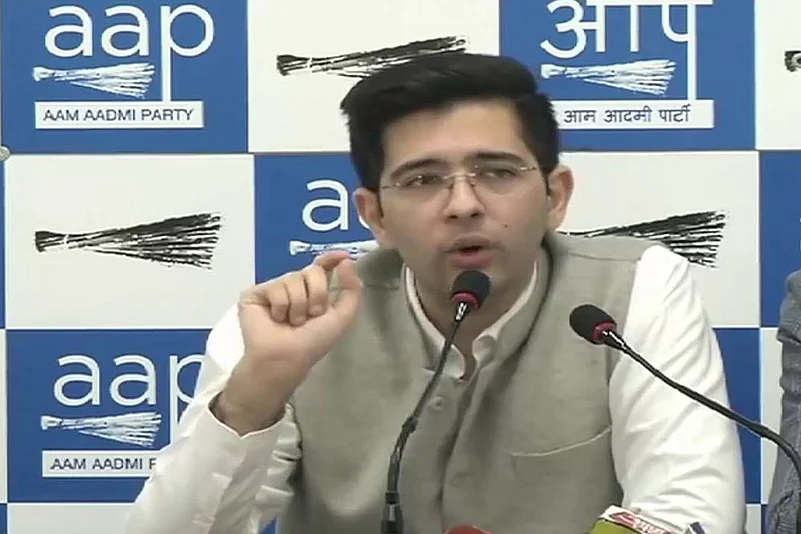This afternoon, 20 AAP MLAs, who have been disqualified as legislators for holding office of profit, withdrew their petitions in Delhi High Court challenging the Election Commission's (EC) recommendation which has received Presidential assent, saying they would move fresh pleas in the matter.
Justice Rekha Palli termed the petition “dismissed as withdrawn” after a day of great expectations and much suspense. Advocate Manish Vashist, representing one of the disqualified AAP MLAs, told the court that their application was “infructuous”. This is because of the notification by the EC on Saturday.
The EC recommended in the notification the disqualification of the MLAs on account of ‘holding offices of profit’. This is contested by the AAP, which said that the letters of appointment did not have any pecuniary gain attached to it.
Raghav Chadha, national spokesperson, AAP, refers to past Supreme Court judgments in a telephone interview with Outlook even as this controversy raged in the news and on social media.
“In several landmark judgments, the SC has very clearly said office of profit is an office capable of yielding any profit or pecuniary gain. In our case, we have expressly stated that no pecuniary benefit of any kind will be given,” he said.
Seen in this light, the EC order, says Chadha, is “unconstitutional illegal, malafide and completely violates natural justice.”
According to Chadha, after the EC order on June 23, 2017 — the last known order in the matter — the party was not invited to present its case. As no hearing was held in the matter thereafter, he said, the party finds the situation untenable.
“There have been parliamentary secretaries in all Congress and BJP-ruled states,” he says, underpinning the crux of AAP’s argument in the matter.
The AAP’ office of profit controversy came into being after advocate Prashant Patel filed a petition against party’s 21 MLAs on June 19, 2015, close to three months after their appointments. (The proceedings against Jarnail Singh were dropped after he resigned as the Rajouri Garden MLA to contest the Punjab assembly polls.)
Meet Malhotra, one of the senior counsels who had appeared in the case for the petitioner, questions the issue of profit. “If it was true that these (offices) were not of profit then why were they made? Why couldn’t they do without them?” Malhotra also asks if the party, sure of what it was doing, introduced a law to give it legal sanctity. “What was the “point of introducing a law that would actually formalize this issue,” he said.
The Delhi Assembly passed the Removal of Disqualification Amendment Bill 2015 on June 24, only for then President Pranab Mukherjee to refuse assent. Chadha said several states that brought in similar bills were cleared since the governor and the President respect the will of the people and the assembly of the state.
“But in Delhi, every legislation has been stalled,” he said.
Former chief election commissioner Achal Jyoti’s tenure ended today, and Chadha called this “a bid to repay his debt to Mr. Modi. It is so brazen”. The party believes it is treated unfairly due to the long attrition between Delhi chief minister Arvind Kejriwal and Prime Minister Narendra Modi.
(With PTI inputs)


























